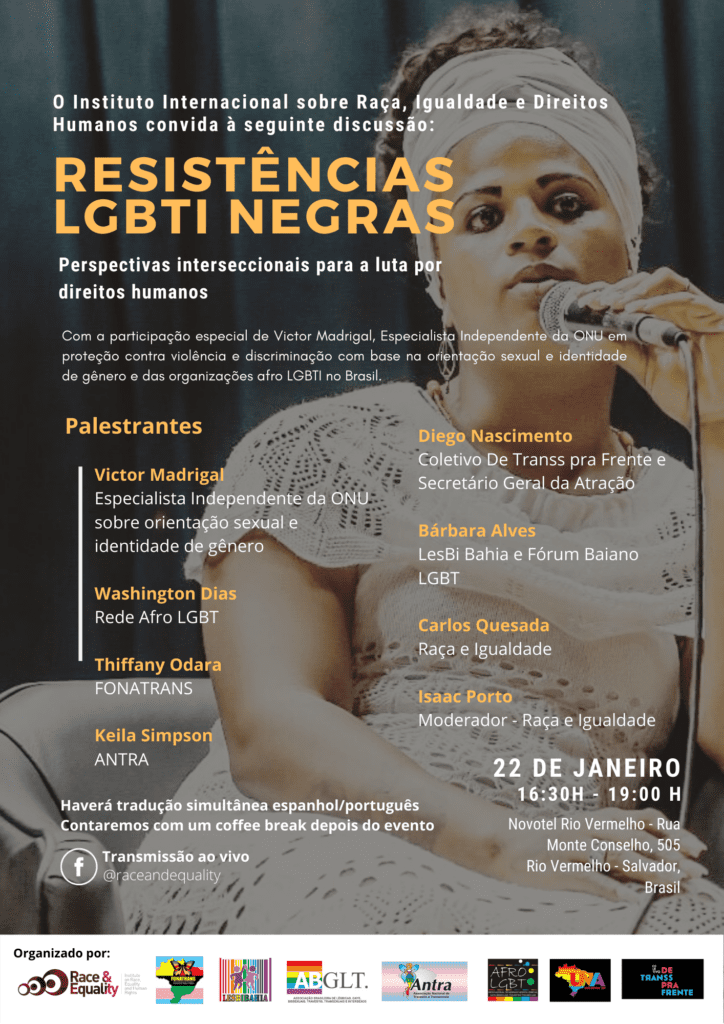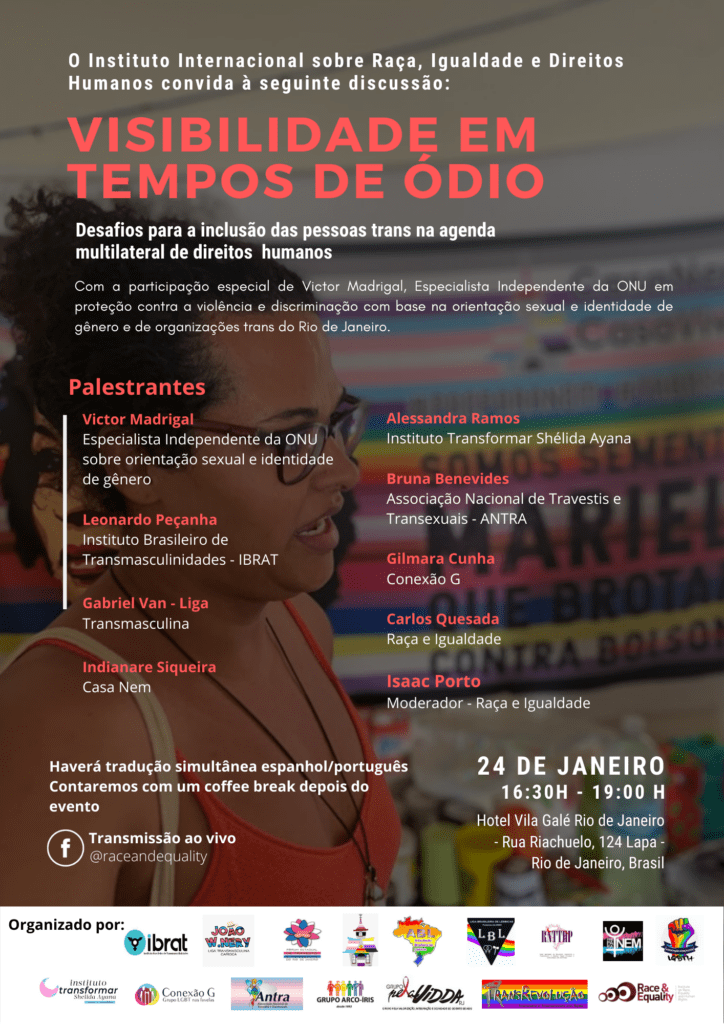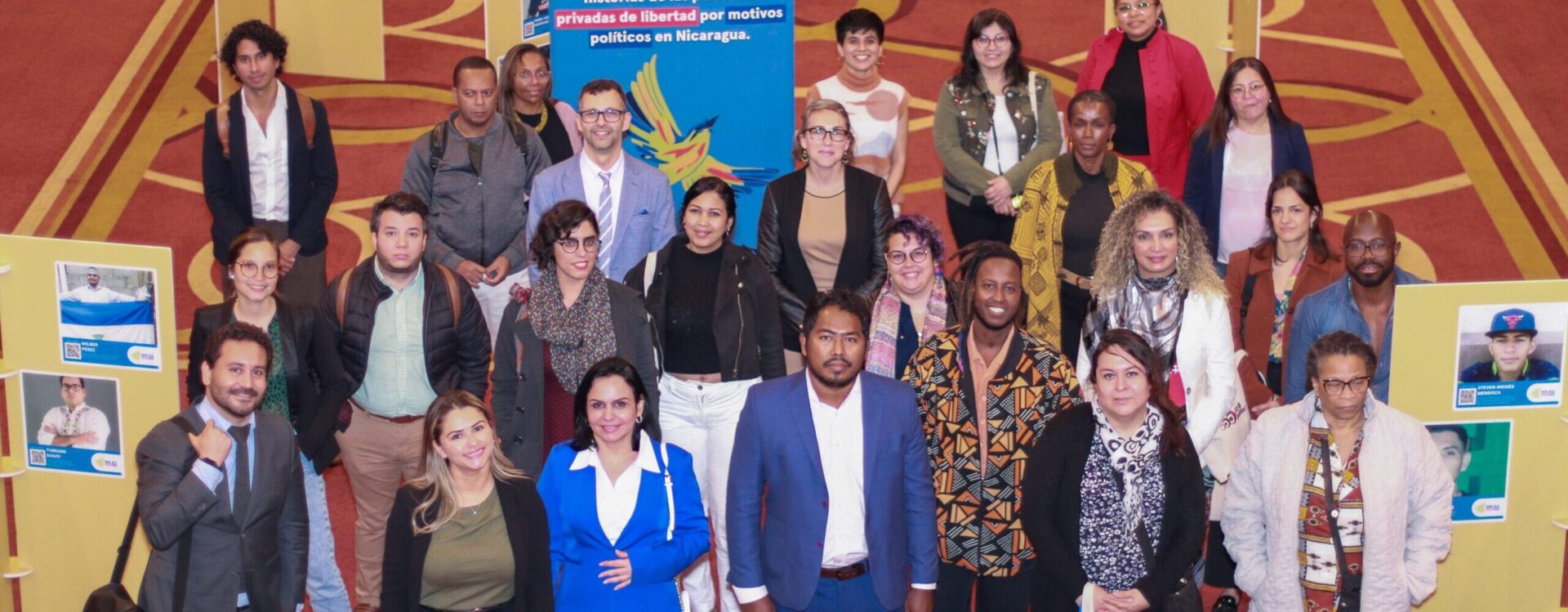Raza e Igualdad impulsa campaña por los derechos de las prisioneras políticas en Cuba
Washington, D.C. 6 de marzo de 2020. En el marco de la conmemoración del Día Internacional de los Derechos de las Mujeres, el Instituto Internacional sobre Raza, Igualdad y Derechos Humanos (Raza e Igualdad), emprende la campaña #CubanasLibresYA, espacio que busca visibilizar la situación de derechos de las mujeres en Cuba, especialmente de aquellas que debido a su activismo político por la defensa de los derechos humanos en la isla cumplen arbitrarias e injustas condenas en las prisiones del Estado Cubano.
La campaña que se extenderá a lo largo del primer semestre del año, busca relatar la historia de 10 mujeres que son prisioneras políticas del Estado Cubano y actualmente cumplen sentencia en diferentes centros penitencerias de Cuba, que han sido víctimas de detención domiciliaria o fueron presas políticas del gobierno a causa de su activismo.
Las historias serán recogidas en el microsite CubanasLibresYA
“Si bien la represión contra los defensores de los derechos humanos, los periodistas y otros activistas políticos es común en Cuba, su impacto particular en las mujeres no se discute con frecuencia, aun cuando las cifras de detenciones arbitrarias igualan, o en algunos casos, superan la cifra de detenciones en los varones” señala Christina Fetterhoff, Oficial Senior del Programa Legal para Raza e Igualdad.
Así mismo, Fetterhoff explica que existen violencias diferenciadas en las mujeres activistas que se encuentran en estado de detención, pues existe una brecha significativa en temas de paridad de género, igualdad, reconocimiento e inclusión de derechos que impacta la vida del conjunto social al que pertenece una mujer defensora de derechos humanos cuando es detenida. “La realidad de las mujeres cubanas es escalofriante, el pleno goce de los derechos económicos, sociales y políticos es muy limitado, razón por la cual cuando una mujer cabeza de familia es encarcelada no sólo tiene un impacto social evidente, sino que impacta desproporcionalmente la vida de la familia y comunidad del que esa mujer depende”, añade la representante de Raza e Igualdad.
La campaña pretende además poner en la agenda pública e internacional la falta de información que existe del estado de las mujeres prisioneras políticas y de las violaciones sistemáticas que al interior de los centros penitenciarios son perpetrados. “Sabemos por algunas conversaciones con ex prisioneras políticas y familiares de las aún en estado de detención que las condiciones son inhumanas, no cuentan con acceso a productos de higiene femenina, atención médica básica y condiciones seguras para dormir. Además, las llamadas telefónicas y las posibilidades de tener visitas de familiares son impedidas muchas veces. No existe información real de lo que sucede con estas mujeres, pues tampoco, ningún organismo internacional ha podido constatar su estado. Situaciones como las de Xiomara Cruz son las que se están presentando en las cárceles de Cuba muy probablemente”, infirió Christina Fetterhoff de Raza e Igualdad.
El lanzamiento de la campaña #CubanasLibresYA se lleva a cabo hoy, 6 de marzo, con ocasión de la conmemoración del Día Internacional de los Derechos de las Mujeres a través de las redes sociales de Raza e Igualdad.
La campaña dará apertura con la historia de Martha Sánchez, una de las mujeres pertenecientes a la organización de las Damas de Blanco que hoy cumple una sentencia de cárcel de 4 años y 6 meses por portar carteles mientras se dirigia a una misa dominical.

Pueden leer la historia de Martha aquí
La invitación de Raza e Igualdad es a multiplicar el mensaje para poner en evidencia la situación de represión de los derechos humanos de defensores y defensoras de derechos humanos, que son especialmente perseguidos a causa de su filiación políticas y para evidenciar aún más la situación de derechos humanos de las mujeres que siguen siendo víctimas de lógicas machistas que persisten en el país.




